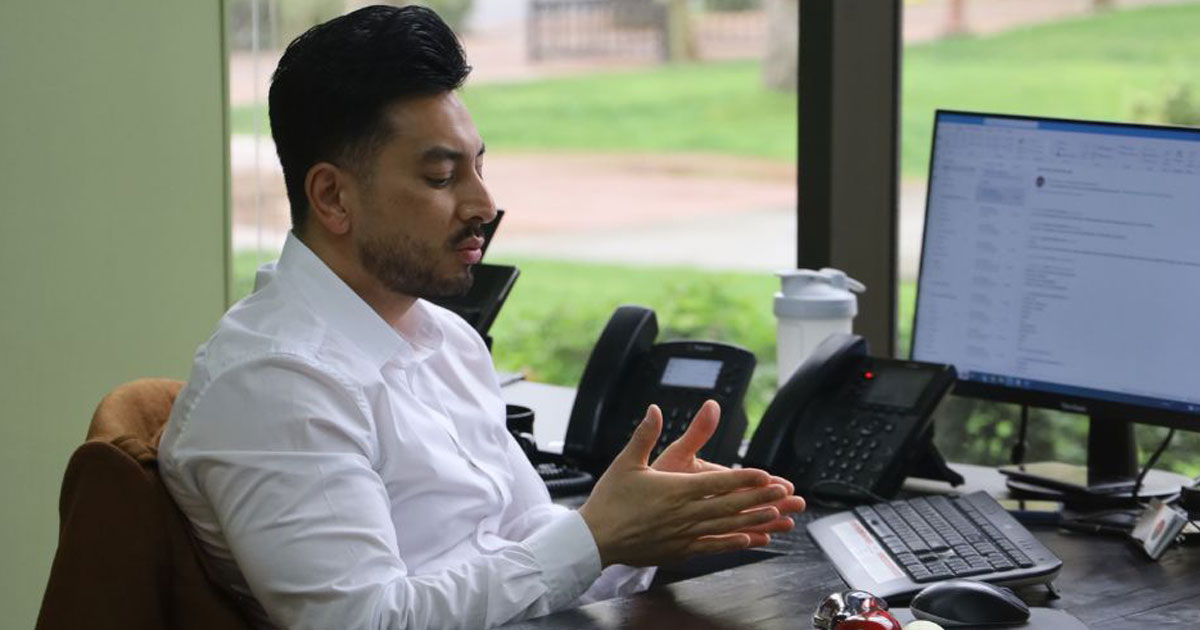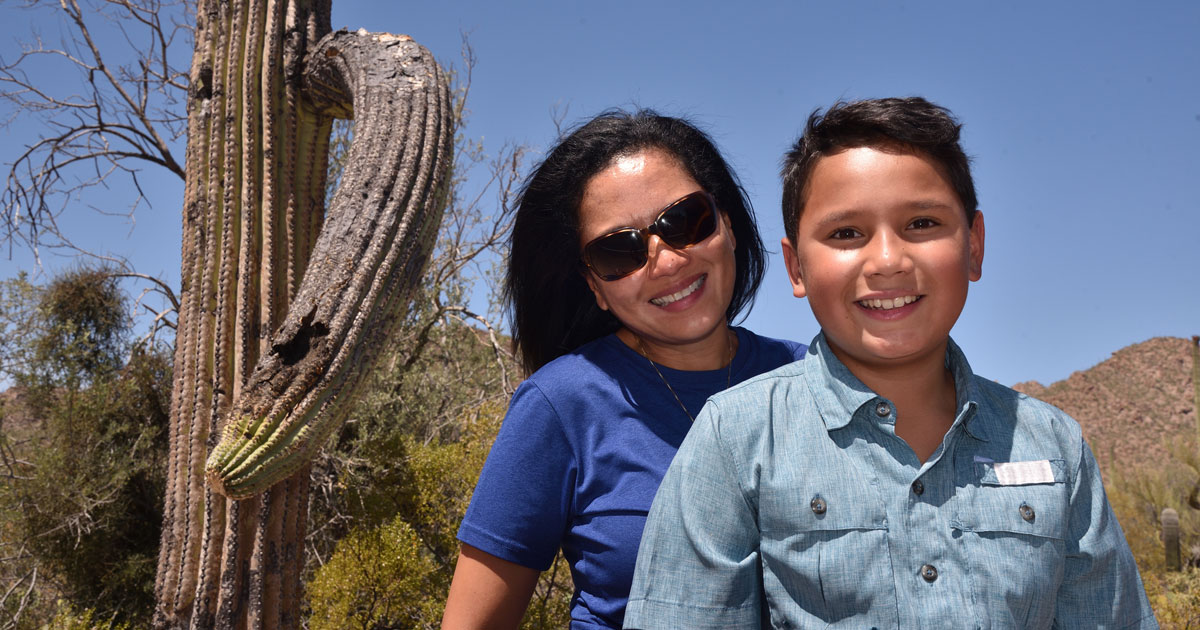Table of Contents
ToggleWhen parents separate in the state of Arizona, they must make a series of important decisions regarding their child’s care and well-being. Unfortunately, the resulting legal struggles surrounding who will have parenting time and decision-making rights over the child can get emotionally difficult and leave long-lasting scars. The most contentious child custody battles can be drawn out for long periods of time and can put all members of the family in an uncomfortable position.
Some states are considered to be “mother-friendly” or “father’s states,” as people assume they tend toward favoring one parent over the other in child custody cases. The state of Arizona is often rumored to be a “mother-friendly” state. However, this is ultimately an untrue notion. In this blog, the legal experts at The Valley Law Group will unpack the laws and policies surrounding child custody court decisions and address how the state really handles these decisions.
Addressing Arizona “Mother State” Stereotypes
As mentioned, if you are a mother in a child custody case in Arizona, you do not have any particular advantage over the father in the case. Similarly, if you are a father in Arizona, you are not at a disadvantage. This means that a parent is not guaranteed to win a child custody case solely based on the fact that they are a woman. When determining who gets decision-making rights and parenting time, as well as the rest of the specifics of the parenting plan, the parents’ genders are not taken into account at all.
In fact, nondiscrimination based on gender when it comes to child custody cases is written into the law. Arizona Statute 25-403.02 states that the courts cannot consider the gender of the child or the parents involved when making custody or child support decisions. In the event that you feel that the court or judge is biased against you as a parent because of your gender, you should work closely with an experienced family lawyer.
Overall, when determining how a parenting plan should be outlined for a family, including whether there will be joint or sole custody and who gets parenting time and decision-making rights, the court is concerned with one thing: the best interest of the child. In other words, the court will arrive at what it considers to be best for the child’s well-being, which has both emotional and physical implications.
That means fathers have the same chance as mothers regarding many parenting rights, such as child support, making important decisions like where the child will go to school or which house of worship they will attend, and whether they need certain medical procedures.
How Arizona Courts Determine Child Custody

In Arizona, child custody consists of both parenting time (physical custody) and legal decision-making rights (legal custody). Deciding which parent receives more parenting time or decision-making rights in an Arizona child custody case depends on many different factors.
In some cases, child custody arrangements can be mostly determined outside of the courtroom. This means that through processes like mediation or a collaborative divorce, the parents can sit down and come to an agreement on how the child custody plan should work. Then, a judge will simply need to approve the mutually beneficial plan.
However, in many cases, parents are not able to agree on child custody matters outside of court. They must ultimately take their dispute to the Arizona family courts so that the decision can be made for them during litigation.
During all child custody decisions, the Arizona Family Court will consider the following:
- How the child gets along with each parent. It is extremely important for the Arizona court to have an understanding of the quality of the child’s relationships with their parents. If the child is particularly uncomfortable living with the mother, for example, then the decision will likely be more favorable to the father.
- How much each parent contributes to the needs of the child. Arizona law requires both parents to contribute equally to meeting the financial needs of the child, but the court also assesses the child’s emotional and physical needs. It is important that each parent can demonstrate that they have financial provisions to pay for basic needs and that they each make themselves available emotionally.
- How comfortable the child is in each potential living situation. If the child in question does not adjust well to a new neighborhood or school, then the courts will consider prioritizing the parent associated with the more comfortable and familiar living situation. Sometimes, uprooting children from their community can be emotionally challenging, forcing them to leave behind strong relationships.
- Whether one of the parents previously abused or neglected the child. If there is evidence that the child was physically, sexually, emotionally, or verbally abused or neglected for periods of time by a parent, the courts will prioritize the child’s safety when creating the parenting plan.
- The overall health of both child and parent. Each parent should be in sound physical and mental health to provide for their child. If the court finds that one parent is mentally unfit to provide physical and mental support for the child, they will not be prioritized in the custody plan. However, it’s also important to note that disabilities such as immobility cannot be used to discriminate against a parent in determining child custody.
It is important to note that there is no consideration of gender when the Arizona courts determine a custody plan. By contrast, factors such as the health and attitude of the parents and the child, as well as each parent’s capacity to provide a loving home, are taken into account. If you are unsure how to increase your chances of getting desired outcomes for your child custody case, you should get in touch with an experienced Arizona child custody lawyer.
Arizona Courts and the Child’s Best Interest

As a final goal for all the factors mentioned above, Arizona courts strive to ensure that the child custody decision will result in an outcome that will benefit the child’s best interest. The best interest of the child will be taken into account when determining which parent receives parenting time and decision-making rights, as well as how each is split. This involves mapping out the parenting plan, assigning decision-making rights, determining child support, and deciding where the child’s main domicile will be.
If you are a parent amidst a child custody dispute, it is crucial to provide evidence that will convince the court that your proposal is the one that will most benefit your child. In order to do this, it is crucial to seek help from a family attorney. An attorney can help you gather reliable witnesses and evidence documenting your relationship with your child and each of the other factors listed above.
Witnesses who can testify to your or the other parent’s relationship with the child often include close friends or family members. Evidence can be family photos and conversations through text, email, or even social media sites. In some cases, a guardian ad litem – a court representative acting on behalf of the child – is appointed to determine the child’s best interests.
The process of deciding what components of a parenting plan are in the child’s best interest can take a long time, and a guardian ad litem could be appointed because children are typically absent from the courtroom in order to prevent mental stress and promote continued normalcy in their lives.
If the other parent has a history of abuse, neglect, or other existing criminal charges that will impact the case, you should make sure that the appropriate records are available to the court. This is especially applicable if you are concerned about your child’s well-being when they are with them, such as in domestic violence cases. In these cases, a restraining order and sole custody are often in the child’s best interest. Additionally, any medical and mental health records should be made available if one parent believes that the other parent is mentally unfit to care for the child.
Understanding Joint versus Sole Custody
Joint custody is a child custody arrangement in which both parents retain the right to jointly make decisions regarding where the child will live as well as legal decisions that impact the child’s lifestyle. These legal decisions can include what religion the child will follow, where they will go to school, what their day-to-day schedule will look like, and the type of medical care they receive. As a default, Arizona courts prefer for both parents to remain involved in the child’s life as much as possible.
In order to finalize a joint custody arrangement, the court will issue an approved parenting plan. This plan will include the address or addresses of the child, their healthcare insurance and plan for service consumption, and the school they will attend. Also included in the parenting plan is a written agreement from both of the parents stating how they will deal with conflict should it arise in the future.
Sole custody is a custody arrangement in which one of the parents makes all physical and legal decisions alone. This situation can happen when the other parent is deemed unfit to parent. The court may decide to grant sole physical custody to a parent if the other parent lives too far away, and having to travel back and forth multiple times can be extremely stressful and disruptive to the child’s upbringing.
More often, one parent will retain primary physical custody – or more parenting time than the other parent – and the parents will work together to make important legal decisions for the child.
Arizona Custody FAQs
So, do mothers really win custody more often than fathers? Learn more about these child custody questions.
Get the Arizona Support and Protection You And Your Child Need

If you are anxious about the future of your children and your family, the child custody lawyers at The Valley Law Group can help. Whether you are a father or a mother, an experienced child custody lawyer can help you arrive at the best parenting plan for your child, advocate for this plan in court, and demonstrate that your plan addresses your child’s best interests. Our dedicated legal professionals have years of experience helping parents like you successfully settle matters regarding their children.

Jonathan Roeder, Founder/Director of Marketing of The Valley Law Group, is an Arizona native who has dedicated his life and career to the service of others. After graduating salutatorian of his high school class, Jonathan attended beautiful and prestigious Pepperdine University, where he majored in Political Science. During his tenure at Pepperdine University, his passion for helping others grew after securing a clinical position with a residential treatment center for juveniles with substance addictions. Post-graduation, Jonathan returned to Arizona and served as a residential manager for mentally and physically disabled homes.
Read More About Jonathan Roeder



























